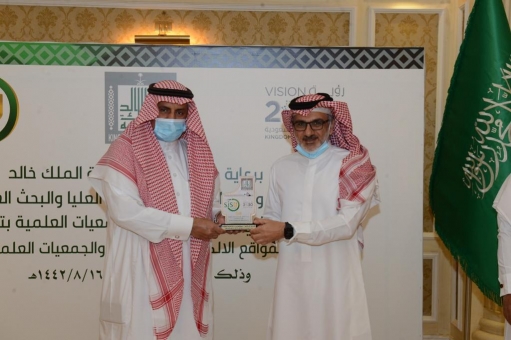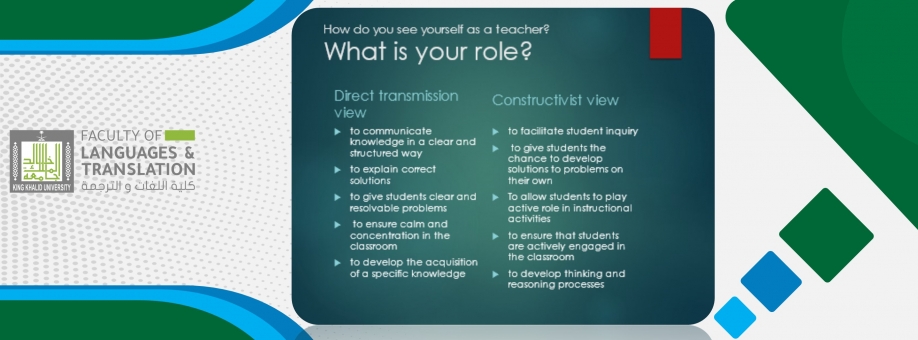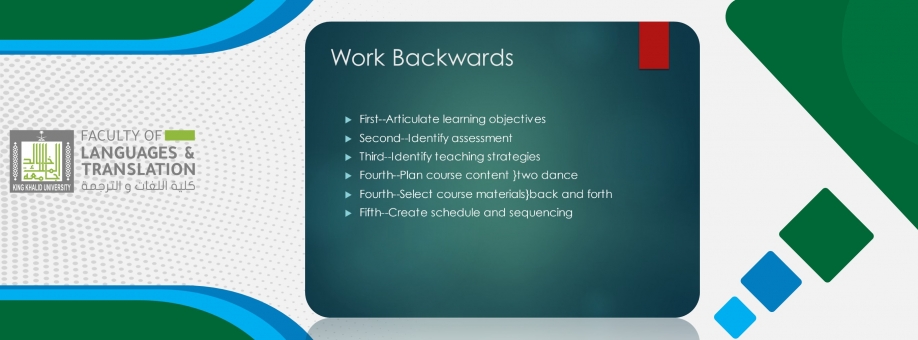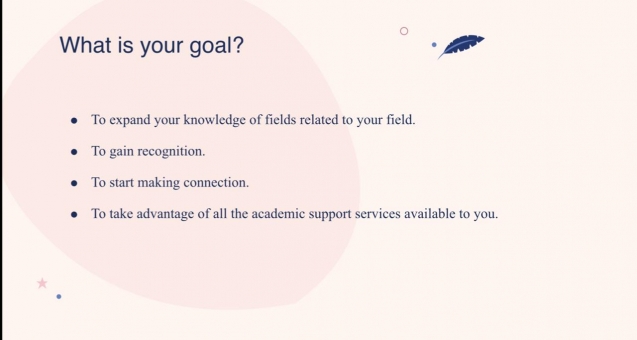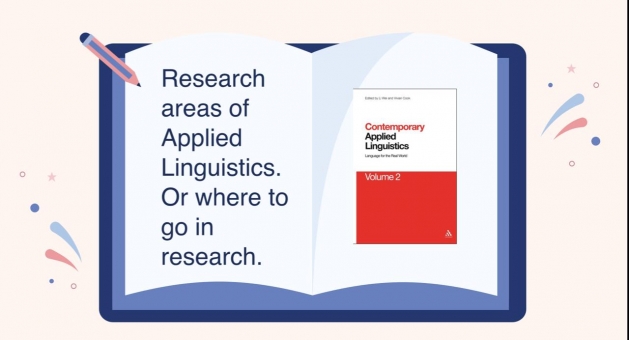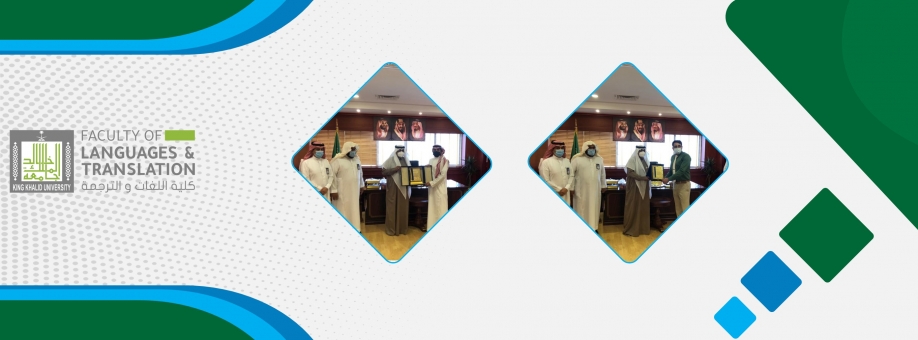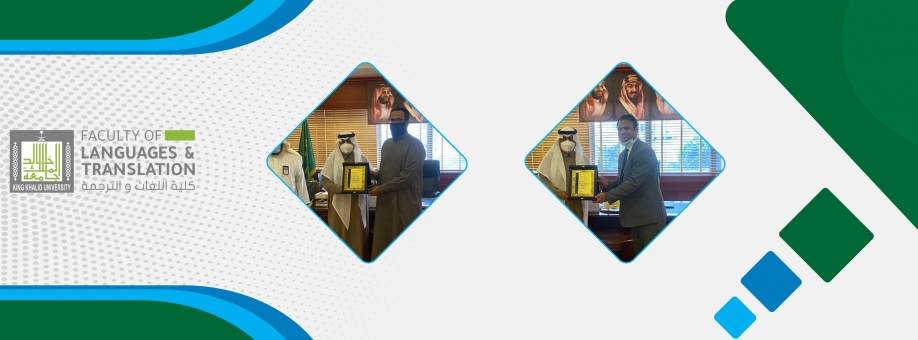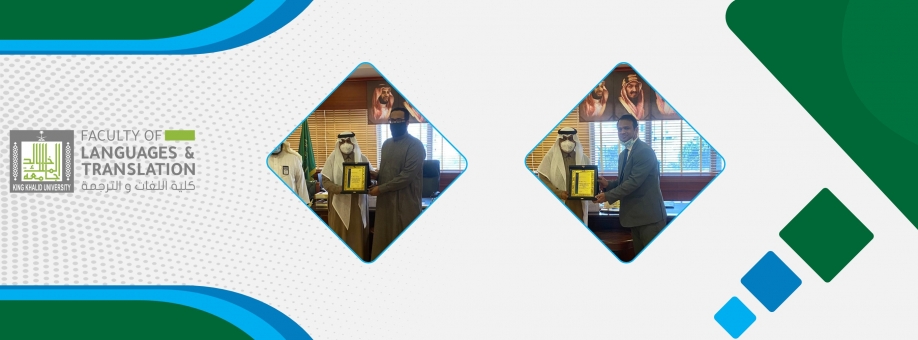Dean Al-Melhi Receives Plaque of Appreciation From University President
On 29 March 2021, Dean Abdullah Al-Melhi received a plaque of appreciation from His Excellency Falleh Al-Solamy, President of King Khalid University, in recognition of his efforts and contributions to the Saudi Journal of Language Studies as editor-in-chief. Vice President of Higher Studies & Scientific Research, Dr. Hamad Al-Garni, Scientific Journals & Societies Unit (SJSU) Supervisor, Dr. Abdullah Asiri, and SJSU Consultant, Dr. Amir Kessentini, supported all honorees in the meeting, expressing their deepest gratitude for the unfailing support and contributions made to ensuring the large body of scholarship produced at King Khalid University will be utilized.
Published by Emerald on behalf of King Khalid University, the Saudi Journal of Language Studies is an academic, open access, double-blind peer-reviewed journal focused on the diffusion of articles on all aspects of language studies. The Saudi Journal of Language Studies (SJLS) is an open forum for interdisciplinary research grounded in sound theory, practice of language research, and translation studies of interest to scholars and language educators. SJLS seeks cutting-edge interdisciplinary research from around the world that reflects diverse theoretical and methodological frameworks and topical areas, including but not limited to:
Foreign and/or second language learning, teaching, and use
Language assessment and testing
Language for Special Purposes (e.g., ESP)
Language for Academic Purposes (LAP)
Multimodal communication and Computer-Mediated Communication (CMC)
Teacher/learner identity studies
Foreign/second language classroom-centred research
Translation studies
Literature studies
Culture studies
Bilingualism and Multilingualism
Lexicographical research, Literacies, Rhetoric and stylistics
Sociolinguistics
Pragmatics
Semiotics
Discourse Analysis
Psycholinguistics
Deaf Linguistics
Forensic Linguistics
Historical Linguistics
Theoretical Linguistics
Of note, Dean of the College of Arts and Sciences at Tanuma, Prof. Abdulaziz Fageeh, received a plaque of appreciation from His Excellency President Al-Solamy in recognition of his efforts and contributions to the KKU Journal of Humanities as editor-in-chief. Both Dean Al-Melhi and Dean Fageeh extended a very warm welcome to thank authors, editors, and anonymous reviewers for contributing to the success of the journals, noting that Dr. Ismail Alrefaai has made significant contributions as a coordinator of both journals.
The website of the journal can be accessed through https://www.emeraldgrouppublishing.com/journal/sjls. Submit your research article today, and the SJLS Editorial Advisory Board will assess your submission based on the policy and scope of SJLS. Prof. Habib Abdesslem, Dr. Munassir Alhamami, Dr. Fakieh Alrabai, Dr. Ismail Alrefaai, and Prof. Abdulaziz Fageeh all serve as SJLS Editorial Advisory Board members and look forward to your submissions.
Date: 3/30/2021
Source: Faculty of Languages and Translation

